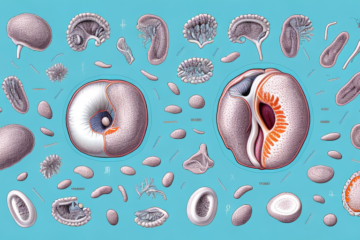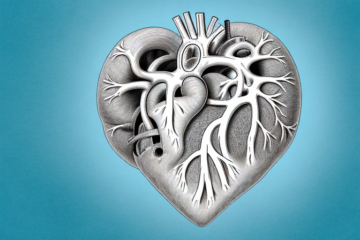Thrush, also known as oral candidiasis, is a fungal infection that affects the mouth and throat. The condition is caused by a type of fungus called Candida, which is naturally present in the body.
What is Thrush?
Thrush is a common fungal infection that affects the mouth and throat. It is caused by the overgrowth of a type of fungus called Candida, which is naturally present in the body. When the balance of bacteria in the mouth is disrupted, Candida can grow out of control, resulting in thrush.
Thrush can be more common in people with weakened immune systems, such as those with HIV/AIDS or undergoing chemotherapy. It can also occur in babies, particularly those who are born prematurely or have a weakened immune system. Symptoms of thrush include white patches on the tongue, inner cheeks, and roof of the mouth, as well as soreness and difficulty swallowing. Treatment typically involves antifungal medication, and steps can be taken to prevent thrush from recurring, such as maintaining good oral hygiene and avoiding certain medications that can disrupt the balance of bacteria in the mouth.
Signs and Symptoms of Thrush
The signs and symptoms of thrush can vary depending on the severity of the infection. Common symptoms include white or yellow patches in the mouth, a sore throat, difficulty swallowing, a burning sensation in the mouth or throat, and redness or swelling of the mouth and throat.
In addition to the common symptoms, some people may experience a loss of taste or a cottony feeling in the mouth. Thrush can also spread to other parts of the body, such as the skin, lungs, and digestive system, causing symptoms such as rashes, coughing, and diarrhea.
People who have weakened immune systems, such as those with HIV/AIDS or undergoing chemotherapy, are at a higher risk of developing thrush. Other risk factors include taking antibiotics, using corticosteroids, and having uncontrolled diabetes.
Causes of Thrush
Thrush is caused by an overgrowth of Candida, which can occur due to a variety of factors. Some common causes of thrush include poor oral hygiene, weakened immune system, certain medications, and underlying health conditions such as diabetes or HIV infection.
In addition to the aforementioned causes, thrush can also be caused by wearing dentures that don’t fit properly, smoking, and undergoing chemotherapy or radiation therapy. These factors can disrupt the balance of bacteria in the mouth, allowing Candida to grow and cause thrush.
Risk Factors for Thrush
There are several factors that can increase your risk of developing thrush. These include poor oral hygiene, smoking, use of antibiotics, weakened immune system, and certain medical conditions such as diabetes and HIV infection.
Another risk factor for thrush is the use of corticosteroids, which can weaken the immune system and increase the growth of yeast in the mouth. Additionally, wearing dentures that don’t fit properly can cause irritation and create an environment for yeast to thrive.
It’s important to note that thrush can also be passed from person to person through direct contact, such as kissing or sharing utensils. People who are at a higher risk for thrush should take extra precautions to avoid spreading the infection to others.
Types of Thrush
There are several types of thrush, including oral thrush, esophageal thrush, and vaginal thrush. Oral thrush is the most common type of thrush, affecting the mouth and throat. Esophageal thrush affects the esophagus and can cause difficulty swallowing, while vaginal thrush affects the vagina and can cause itching, burning, and discharge.
Other less common types of thrush include invasive candidiasis, which can affect the bloodstream, and cutaneous candidiasis, which affects the skin and nails. Invasive candidiasis can be life-threatening, especially for people with weakened immune systems, while cutaneous candidiasis can cause red, itchy rashes and nail infections.
Diagnosis of Thrush
Diagnosis of thrush is typically based on a physical exam and a review of your medical history. Your doctor may also perform a swab test to confirm the presence of the Candida fungus.
In addition to a physical exam and medical history review, your doctor may also recommend blood tests to check for underlying medical conditions that may be contributing to your thrush. These conditions can include diabetes, HIV, or other immune system disorders. It is important to receive a proper diagnosis and treatment for thrush to prevent it from spreading or recurring.
Home Remedies for Thrush
There are several home remedies that can help alleviate the symptoms of thrush. These include rinsing your mouth with saltwater, applying coconut oil to the affected area, and consuming probiotics.
Another effective home remedy for thrush is using tea tree oil. Tea tree oil has antifungal properties that can help fight the Candida fungus responsible for thrush. You can mix a few drops of tea tree oil with a carrier oil, such as coconut oil, and apply it to the affected area.
In addition to these remedies, it’s important to maintain good oral hygiene to prevent thrush from recurring. This includes brushing your teeth twice a day, flossing daily, and avoiding sugary and acidic foods that can promote the growth of Candida fungus.
Over-the-counter Medications for Thrush
There are several over-the-counter medications that can be used to treat thrush. These include antifungal mouthwash, lozenges, and oral gels.
Antifungal mouthwash is a common treatment for thrush. It works by killing the fungus that causes the infection. It is important to use the mouthwash as directed and to continue using it for the full course of treatment, even if symptoms improve.
Lozenges and oral gels are also effective treatments for thrush. They work by coating the inside of the mouth and throat, providing relief from symptoms such as pain and discomfort. It is important to follow the instructions on the packaging and to use the medication for the full course of treatment.
Prescription Medications for Thrush
If home remedies and over-the-counter medications are not effective, your doctor may prescribe prescription antifungal medications such as fluconazole or clotrimazole, which can be taken orally or applied topically.
It is important to note that prescription medications for thrush may have side effects, such as nausea, vomiting, and diarrhea. It is important to discuss any potential side effects with your doctor before starting any new medication.
In addition, it is important to complete the full course of treatment prescribed by your doctor, even if your symptoms improve before the medication is finished. Failure to complete the full course of treatment can lead to a recurrence of thrush or the development of drug-resistant strains of the fungus.
Lifestyle Changes to Treat and Prevent Thrush
There are several lifestyle changes that can help prevent thrush and alleviate symptoms. These include maintaining good oral hygiene, avoiding smoking and excessive alcohol consumption, and managing underlying health conditions such as diabetes and HIV infection.
In addition to these lifestyle changes, it is also important to avoid wearing tight-fitting clothing made of synthetic materials, as this can create a warm and moist environment that promotes the growth of yeast. It is also recommended to consume a diet that is low in sugar and high in probiotics, as this can help maintain a healthy balance of bacteria in the body.
Recurrent Thrush: Causes and Treatment options
Recurrent thrush is a condition in which the infection returns after treatment. Causes of recurrent thrush may include underlying medical conditions, poor oral hygiene, and weakened immune system. Treatment options include antifungal medications and lifestyle changes such as improving oral hygiene and managing underlying medical conditions.
One of the underlying medical conditions that can cause recurrent thrush is diabetes. High blood sugar levels can create an environment in which yeast can thrive, leading to recurrent infections. Additionally, the use of certain medications such as antibiotics and corticosteroids can also increase the risk of developing recurrent thrush.
In some cases, recurrent thrush may be a sign of an underlying immune system disorder such as HIV or leukemia. It is important to consult with a healthcare provider if you experience recurrent thrush to rule out any underlying medical conditions and receive appropriate treatment.
Complications of Untreated Thrush
Untreated thrush can lead to several complications, including the spread of the infection to other parts of the body, difficulty swallowing, and nutritional deficiencies due to difficulty eating and drinking.
In addition to these complications, untreated thrush can also cause discomfort and pain in the affected areas, such as the mouth and throat. It can also weaken the immune system, making the individual more susceptible to other infections and illnesses. It is important to seek medical treatment if you suspect you have thrush, to prevent these complications from occurring.
Prevention of thrush
There are several steps you can take to prevent thrush. These include maintaining good oral hygiene, avoiding smoking and excessive alcohol consumption, managing underlying health conditions such as diabetes and HIV infection, and avoiding unnecessary use of antibiotics.
In conclusion, thrush is a common fungal infection that affects the mouth and throat. It is caused by the overgrowth of Candida, which can occur due to a variety of factors. The condition can be treated with home remedies, over-the-counter medications, prescription medications, and lifestyle changes. Prevention is key, and maintaining good oral hygiene and managing underlying health conditions can help prevent the condition from developing or recurring. If you suspect you have thrush, it is important to seek medical attention to receive an accurate diagnosis and appropriate treatment.
It is also important to note that thrush can be contagious, especially among infants, elderly individuals, and those with weakened immune systems. If you have thrush, it is important to avoid sharing utensils, toothbrushes, and other personal items with others to prevent the spread of the infection. Additionally, practicing safe sex and using condoms can help prevent the transmission of thrush during sexual activity.










